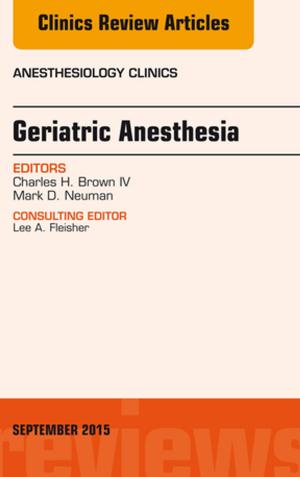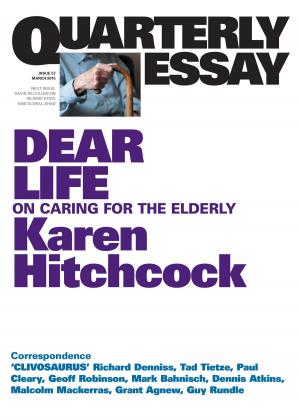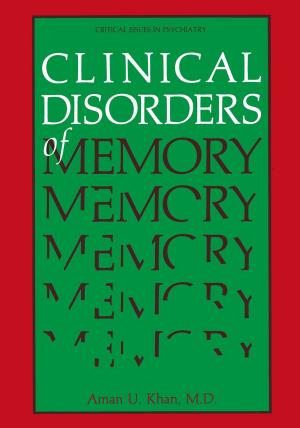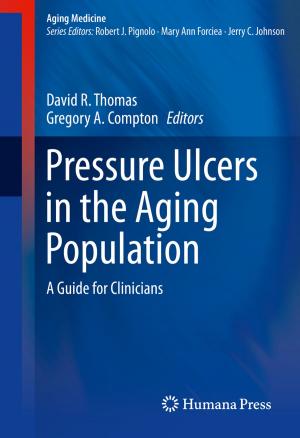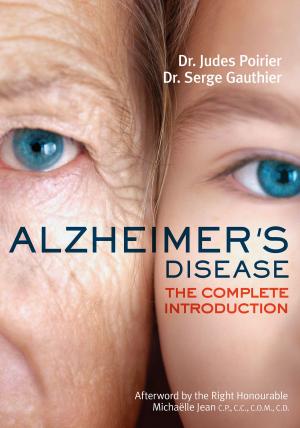Improving Memory
Understanding age-related memory loss
Nonfiction, Health & Well Being, Medical, Specialties, Geriatrics| Author: | Kirk R. Daffner, MD | ISBN: | 9781614010227 |
| Publisher: | Harvard Health Publications | Publication: | May 8, 2014 |
| Imprint: | Language: | English |
| Author: | Kirk R. Daffner, MD |
| ISBN: | 9781614010227 |
| Publisher: | Harvard Health Publications |
| Publication: | May 8, 2014 |
| Imprint: | |
| Language: | English |
In many ways, our memories shape who we are. They make up our internal biographies—the stories we tell ourselves about what we've done with our lives. They tell us who we're connected to, who we've touched during our lives, and who has touched us. In short, our memories are crucial to the essence of who we are as human beings. Age-related memory loss, then, can represent a loss of self. It also affects the practical side of life. Forgetting how to get from your house to the grocery store, how to do everyday tasks, or how you are connected to family members, friends, and other people can mean losing your ability to live independently. It's not surprising, then, that concerns about declining thinking and memory skills rank among the top fears people have as they age. There's no getting around the fact that the ability to remember can slip with age. Many of these changes are normal, and not a sign of dementia. Improving Memory, a Special Health Report from Harvard Medical School, helps you understand the difference between normal, age-related changes in memory and changes caused by dementia. The report discusses the different types of dementia and the treatments available for them. Equally important, it offers tips on how to keep your brain healthy, and how to help improve your memory if you're living with age-related memory loss. One of the key components of this memory-saving program is to keep the rest of your body healthy. Many medical conditions—from heart disease to depression—can affect your memory. Staying physically and mentally active turns out to be among the best prescriptions for maintaining a healthy brain and a resilient memory.
In many ways, our memories shape who we are. They make up our internal biographies—the stories we tell ourselves about what we've done with our lives. They tell us who we're connected to, who we've touched during our lives, and who has touched us. In short, our memories are crucial to the essence of who we are as human beings. Age-related memory loss, then, can represent a loss of self. It also affects the practical side of life. Forgetting how to get from your house to the grocery store, how to do everyday tasks, or how you are connected to family members, friends, and other people can mean losing your ability to live independently. It's not surprising, then, that concerns about declining thinking and memory skills rank among the top fears people have as they age. There's no getting around the fact that the ability to remember can slip with age. Many of these changes are normal, and not a sign of dementia. Improving Memory, a Special Health Report from Harvard Medical School, helps you understand the difference between normal, age-related changes in memory and changes caused by dementia. The report discusses the different types of dementia and the treatments available for them. Equally important, it offers tips on how to keep your brain healthy, and how to help improve your memory if you're living with age-related memory loss. One of the key components of this memory-saving program is to keep the rest of your body healthy. Many medical conditions—from heart disease to depression—can affect your memory. Staying physically and mentally active turns out to be among the best prescriptions for maintaining a healthy brain and a resilient memory.

